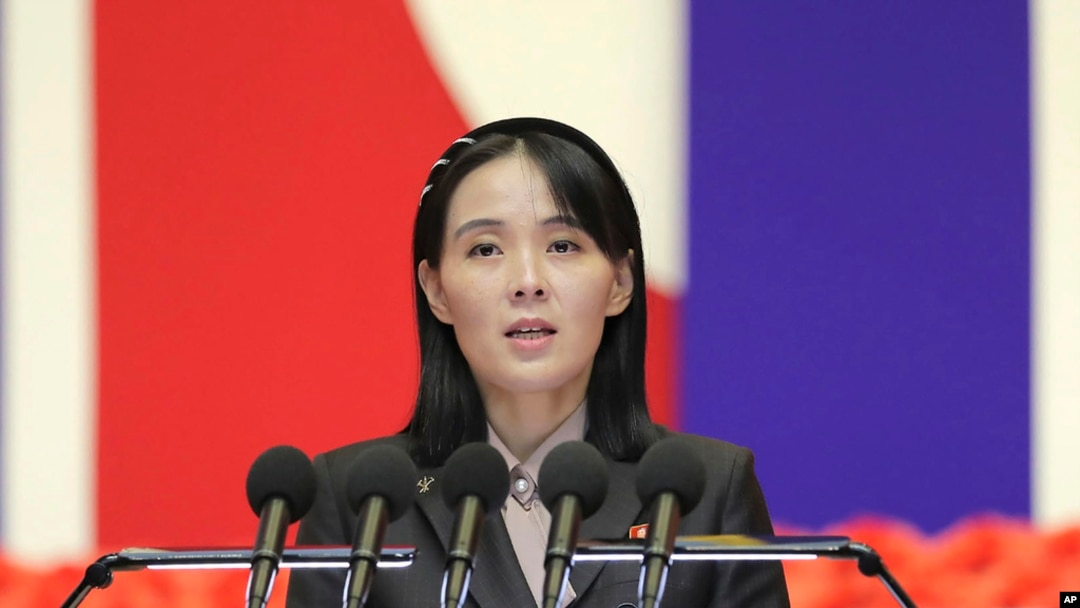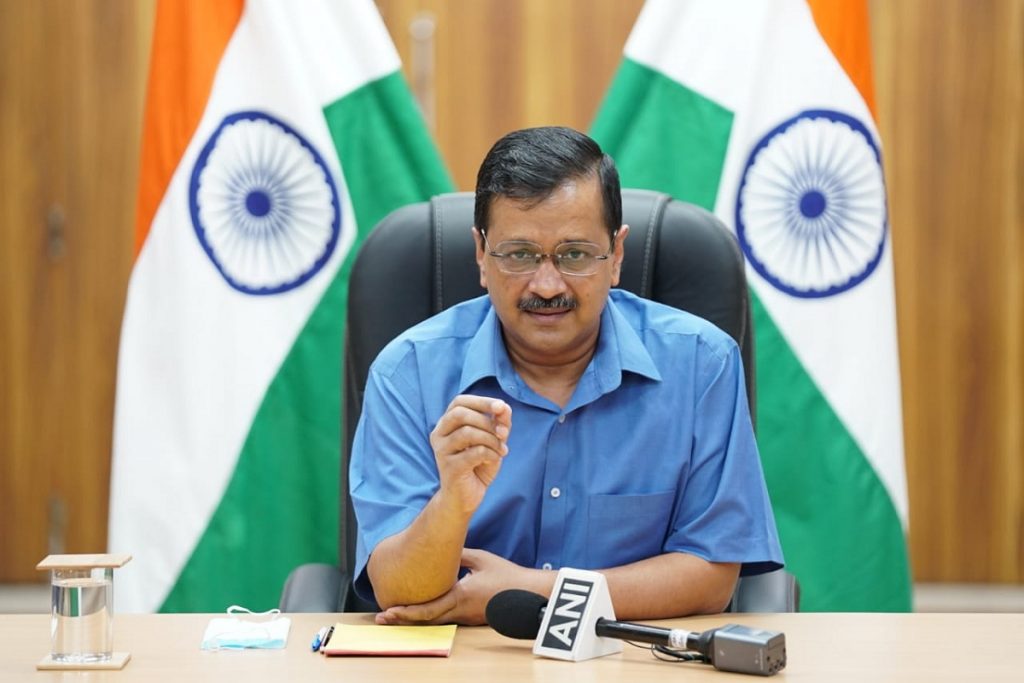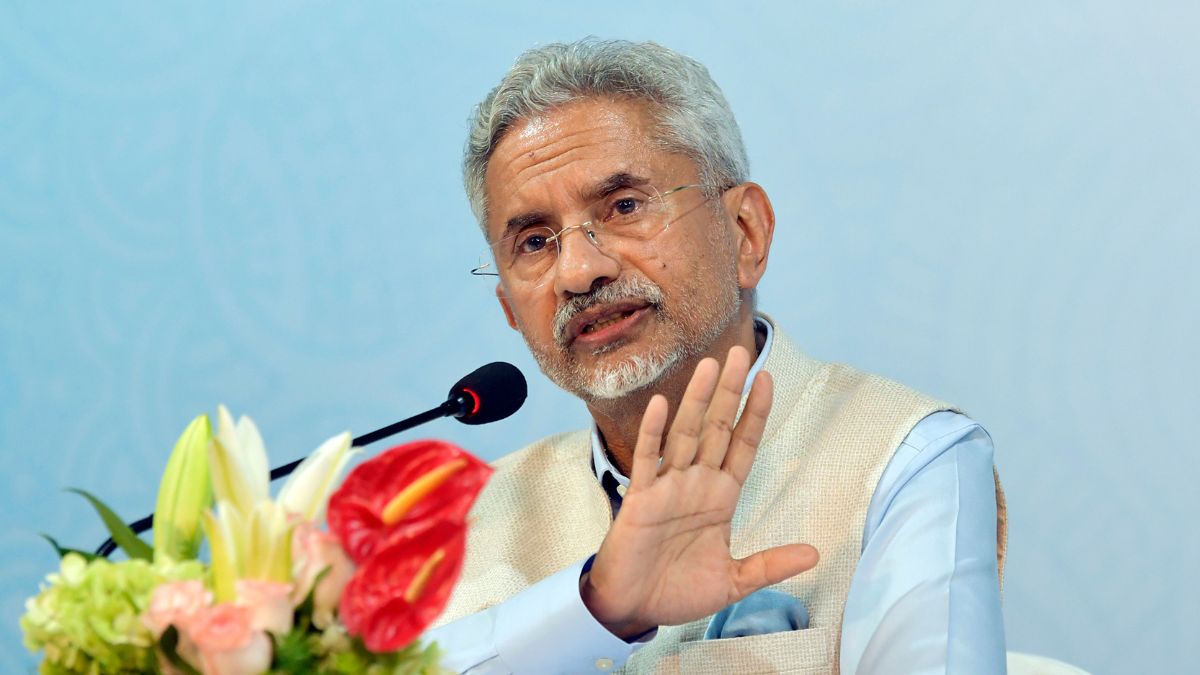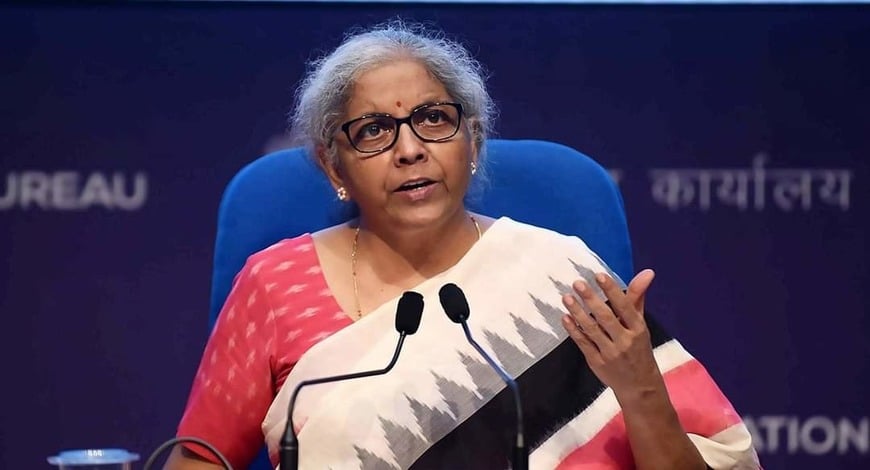Indian political history is marked by the remarkable contributions of numerous women who have played pivotal roles in shaping the nation’s destiny.
From independence to the present day, these powerful women have defied societal norms, shattered glass ceilings, and emerged as trailblazers in the male-dominated realm of politics. Today we will explore the journeys of some influential women in Indian political history, highlighting their achievements, challenges, and enduring impact.
Indira Gandhi: The first woman Prime Minister of India, Indira Gandhi, served multiple terms and played a significant role in
shaping the country’s political landscape. Her leadership during critical periods, including the Bangladesh Liberation War, contributed to her enduring influence.
She served as the third Prime Minister of India from 1966 to 1977 and again from 1980 until her assassination in 1984. She was India’s first and, to date, only female prime minister. She was the daughter of Jawaharlal Nehru, the first prime minister of India, and the mother of Rajiv Gandhi, who succeeded her in office as the country’s sixth prime minister. Henry Kissinger described her as an “Iron Lady”, a nickname that became associated with her tough personality since her lifetime.
Lal Bahadur Shastri, who had succeeded Nehru as prime minister upon his death in 1964, appointed her minister of information and broadcasting in his government; the same year she was elected to the Rajya Sabha, the upper house of the Indian Parliament. She led the Congress to victory in two subsequent elections, starting with the 1967 general election, in which she was first elected to the lower house of the Indian parliament, the Lok Sabha. In 1971, the Congress Party headed by Gandhi managed to secure its first landslide victory since her father’s sweep in 1962, focusing on issues such as poverty. But following the nationwide Emergency implemented by her, she faced massive anti-incumbency and lost the 1977 general election, the first time for the Congress party to do so.
Citing separatist tendencies and in response to a call for revolution, Gandhi instituted a state of emergency from 1975 to 1977, during which basic civil liberties were suspended and the press was censored. Widespread atrocities were carried out during that period. Gandhi faced the growing Sikh separatism throughout her third premiership; in response, she ordered Operation Blue Star, which involved military action in the Golden Temple and resulted in bloodshed with hundreds of Sikhs killed. On 31 October 1984, Gandhi was assassinated by her bodyguards, both of whom were Sikh nationalists seeking retribution for the events at the temple.
Sonia Gandhi: Sonia Gandhi, the former President of the Indian National Congress, has been a powerful figure in Indian politics. Despite not holding a formal government position, her role as a political strategist and party leader has been instrumental. She is the longest-serving president of the Indian National Congress, a social democratic political party, which has governed India for most of its post-independence history. She took over as the party leader in 1998, seven years after the assassination of Rajiv Gandhi, her husband and a former Prime Minister of India, and remained in office until 2017 after serving for twenty-two years. She returned to the post in 2019 and remained the President for another three years.
Born in Italy, Gandhi was raised in a Roman Catholic family. She met Rajiv Gandhi at Cambridge, England, and later married him in 1968. She then moved to India and started living with her mother-in-law, the then Prime Minister of India, Indira Gandhi, at the latter’s New Delhi residence. Sonia Gandhi, however, kept away from the public sphere, even during the years of her husband’s premiership.
Following her husband’s assassination, Gandhi was invited by Congress leaders to lead the party, but she declined. She agreed to join politics in 1997 after much pleading from the party; the following year, she was nominated for party president. Gandhi presided over the advisory councils credited for the formation and subsequent implementation of such rights-based development and welfare schemes as the Right to Information, Food Security Bill, and MGNREGA, as she drew criticism related to the National Herald case. Her foreign birth has also been a subject of much debate and controversy.
Jayalalithaa Jayaram: Jayalalithaa, popularly known as Amma, was a dominant force in Tamil Nadu politics. She was an Indian politician and actress who served as Chief Minister of Tamil Nadu for more than fourteen years over six terms between 1991 and 2016. From 1 January 1988 to 5 December 2016, she was the 5th and longest serving general secretary of the All India Anna Dravida Munnetra Kazhagam (AIADMK).
Jayalalithaa rose to prominence as a leading film actress in the mid-1960s. Later, she joined the AIADMK, the party MGR founded. Her political rise was rapid; within a few years she became AIADMK propaganda secretary and was elected to the Rajya Sabha, the upper house of India’s Parliament. After M.G.R.’s death in 1987, Jayalalithaa proclaimed herself as his political heir and, having fought off the faction headed by M.G.R.’s widow, V. N. Janaki Ramachandran, emerged as the sole leader of the AIADMK. In 1991, Jayalalithaa became chief minister for the first time and Tamil Nadu’s youngest.
Jayalalithaa indulged in public displays of wealth, culminating in a lavish wedding for her foster son V. N. Sudhakaran (Sasikala’s elder sister son) on 7 September 1995. In the 1996 election, the AIADMK was nearly wiped out at the hustings; Jayalalithaa herself lost her seat. The AIADMK returned to power in 2001, although Jayalalithaa was personally disbarred from contesting due to the corruption cases. Within a few months of her taking oath as chief minister, in September 2001, she was disqualified from holding office and forced to cede the chair to minister O. Panneerselvam. Upon her acquittal six months later, Jayalalithaa returned as chief minister to complete her term. Another period (2006–11) in the opposition followed, before Jayalalithaa was sworn in as chief minister for the fourth time after the AIADMK swept the 2011 assembly election. Three years into her tenure, she was convicted in a disproportionate-assets case, rendering her disqualified to hold office. She returned as chief minister after being acquitted in May 2015. In the 2016 assembly election, she became the first Tamil Nadu chief minister since M.G.R in 1984 to be voted back into office. That September, she fell severely ill and, following 75 days of hospitalisation, died on 5 December 2016 due to cardiac arrest and became the first female chief minister in India to die in office.
Mayawati: Mayawati, a prominent leader in Uttar Pradesh, has been a key figure in Indian politics. As the Chief Minister of Uttar Pradesh multiple times, she has championed the cause of social justice and empowerment. She served as the 18th Chief Minister of Uttar Pradesh from 1995 to 1995, 1997 to 1997, 2002 to 2003 and from 2007 to 2012. She is the national president of the Bahujan Samaj Party (BSP), which focuses on a platform of social change for Bahujans, more commonly known as Other Backward Castes, Scheduled Castes and Scheduled Tribes as well as religious minorities since 2003. She had also served as
a Member of Parliament, Rajya Sabha from 2012 to 2017 from Uttar Pradesh.
In 1993, Kanshi Ram formed a coalition with the Samajwadi Party and Mayawati became the Chief Minister of Uttar Pradesh in 1995. She was the first female Scheduled Caste chief minister in India. In 1997 and in 2002 she was chief minister with outside support from the Bharatiya Janata Party (BJP), the second time only for a year up to 26 August 2003 due to BJP withdrawing support.
Mamata Banerjee: The current Chief Minister of West Bengal, Mamata Banerjee, has been a formidable leader. Her role in leading the Trinamool Congress and her influence in West Bengal politics make her a powerful figure. She is an Indian
politician who is serving as the eighth and current chief minister of the Indian state of West Bengal since 20 May 2011, the first woman to hold the office. Having served multiple times as a Union Cabinet Minister, Mamata Banerjee became the Chief
Minister of West Bengal for the first time in 2011. She founded the All India Trinamool Congress (AITC or TMC) in 1998 after separating from the Indian National Congress, and became its second chairperson later in 2001.
Banerjee previously served twice as Minister of Railways, the first woman to do so. She is also the second female Minister of Coal, and Minister of Human Resource Development, Youth Affairs and Sports, Women and Child Development in the cabinet of the Indian government. She rose to prominence after opposing the erstwhile land acquisition policies for industrialisation of the Communist-led government in West Bengal for Special Economic Zones at the cost of agriculturalists and farmers at Singur. In 2011, Banerjee pulled off a landslide victory for the AITC alliance in West Bengal, defeating the 34-year old Communist Party of India (Marxist)-led Left Front government, the world’s longest-serving democratically elected communist-led government, in the process. She served as the member of West Bengal Legislative Assembly from Bhabanipur from 2011 to 2021. She contested the Nandigram assembly seat and lost to the BJP’s Suvendu Adhikari in the 2021 West Bengal Assembly elections, though her party won a large majority of seats. She led her party to a landslide victory in the 2021 West Bengal assembly polls. She got elected as member of West Bengal Legislative Assembly again from Bhabanipur constituency in the bypoll.
Sushma Swaraj: She was an Indian lawyer and politician, who served as the Minister of External Affairs of India in the first Narendra Modi government from 2014 to 2019. She was the second person to complete a 5-year term as the Minister of External Affairs, after Jawaharlal Nehru. A senior leader of the Bharatiya Janata Party (BJP), Swaraj was the second woman to
hold the office of Minister of External Affairs, after Indira Gandhi. She was elected seven times as a Member of Parliament and three times as a Member of the Legislative Assembly. At the age of 25 in 1977, she became the youngest cabinet minister of
the Indian state of Haryana. She also served as 5th Chief Minister of Delhi for a short duration in 1998 and became the first female Chief Minister of Delhi.
In the 2014 Indian general election, Swaraj won the Vidisha constituency in Madhya Pradesh for a second term, retaining her seat by a margin of over 400,000 votes. She became the Minister of External Affairs in the union cabinet on 26 May 2014. Swaraj succumbed to a cardiac arrest following a heart attack on the night of 6 August 2019. She was awarded the Padma Vibhushan, India’s second highest civilian award, posthumously in 2020 in the field of PublicAffairs.
Nirmala Sitharaman: Nirmala Sitharaman, India’s first full-time female Finance Minister, has played a crucial role in economic policymaking. Her influence extends to her role in the defence portfolio as well.
She is an Indian economist, politician and a senior leader of the Bhartiya Janata Party (BJP) serving as the Minister of Finance and Minister of Corporate Affairs of the Government of India since 2019. She is a member of the Rajya Sabha, the upper house of the Indian Parliament, representing Karnataka since 2016 and previously represented Andhra Pradesh from 2014 to 2016. Sitharaman previously served as the 28th Defence Minister from 2017 to 2019, thereby becoming India’s second female defence minister and the second female finance minister after Indira Gandhi, and the first full-time female minister to hold each of those portfolios. She served as junior minister in the Modi ministry between 2014 and 2017, holding successive positions, first for her dual appointment as the Minister of State in the Ministry of Finance and the Minister of State in the Ministry of Corporate Affairs from May to November 2014, and then as the Minister of State (Independent Charge) for the Ministry of Commerce and
Industry from May 2014 to September 2017, before being elevated to senior posts within the Union Cabinet. Sitharaman created history as she presented her sixth consecutive budget on February 1, matching the record set by former Prime Minister
Morarji Desai.
Pratibha Patil: She is an Indian politician and lawyer who served as the 12th president of India from 2007 to 2012. She was the first woman to become the president of India. A member of the Indian National Congress, she previously served as the
Governor of Rajasthan from 2004 to 2007, and was a member of the Lok Sabha from 1991 to 1996.
In 1962, at the age of 27, she was elected to the Maharashtra Legislative Assembly for the Jalgaon constituency. After that she won in the Muktainagar (formerly Edlabad) constituency on four consecutive occasions between 1967 and 1985, before becoming a Member of Parliament in the Rajya Sabha between 1985 and 1990. In the 1991 elections for the 10th Lok Sabha, she was elected as a Member of Parliament representing the Amravati constituency. A period of retirement from politics followed later in the decade.
Patil had held various Cabinet portfolios during her period in the Maharashtra Legislative Assembly and held official positions in both the Rajya Sabha and Lok Sabha. In addition, she had been the president of the Maharashtra Pradesh Congress Committee for a few years. Also, she held office as Director of the National Federation of Urban Co-operative Banks and Credit Societies and as a Member of the Governing Council of the National Co-operative Union of India. On 8 November 2004 she was appointed the 17th Governor of Rajasthan, the first woman to hold that office.
Sheila Dikshit: Sheila Dikshit served as the Chief Minister of Delhi for three consecutive terms. Her leadership and focus on development initiatives contributed to her influence in Delhi’s political landscape. The longest-serving Chief Minister of Delhi, as well as the longest-serving female chief minister of any Indian state, she served for a period of 15 years beginning in 1998. Dikshit led the Indian National Congress party to three consecutive electoral victories in Delhi.
Dikshit lost the December 2013 elections of the Delhi Legislative Assembly to the BJP, though Aam Aadmi Party formed a minority government with outside support from the INC, with Arvind Kejriwal as the chief minister. She briefly served as the Governor of Kerala in 2014. She was later declared a chief ministerial candidate for the Indian National Congress in the 2017 Uttar Pradesh Legislative Assembly election, but withdrew her nomination. She was appointed president of Delhi Pradesh Congress Committee on 10 January 2019 and remained in office until her death in July later that year.
Smriti Irani: Smriti Irani, currently serving as the Minister of Women and Child Development, has been a prominent leader in the BJP. Her rise from a television actor to a political figure underscores her influence. She has been Minister of Women
and Child Development since 2019, and also Minister of Minority Affairs since 2022 (as the first non-Muslim to hold the position). She previously served as Minister of Human Resource Development (2014 to 2016), Minister of Textiles (2016 to 2021), and Minister of Information and Broadcasting (2017 to 2018). She was the youngest minister (at age 43) in prime minister Narendra Modi’s second ministry in 2019.
She has been a member of parliament since 2011, serving in the Rajya Sabha from Gujarat from 2011 to 2019 and since 2019 serving as a member of the Lok Sabha from the Amethi constituency in Uttar Pradesh. A prominent leader within the Bharatiya Janata Party, she was the National President of the BJP Mahila Morcha (the party’s women’s wing) from 2010 to 2013. In the 2019 elections she gained the Amethi constituency by defeating opposition leader Rahul Gandhi, then-president of the Indian National Congress, whose family members had represented the constituency for much of the previous four decades. Irani has a diverse family background, with her paternal family including Punjabi and Maharashtrian heritage while her maternal family has a Bengali heritage, and she speaks several Indian languages including Hindi, Bengali, Marathi, Gujarati, and Punjabi.
Vasundhara Raje Scindia: Born into royalty, Vasundhara Raje was introduced to politics by her mother and there was no looking back ever since. She has been Rajasthan’s first woman Chief Minister, and credited with turning around its economic
fortunes. She is a true-blue feminist and is a role model for the Rajasthani women– her confident personality, regal presence, transformative vision, administrative capability and last but not the least, her bold fashion statement and flamboyant sense
of style. Under her leadership, there has been a gradual but sure social change in Rajasthan.


 Opinion2 years ago
Opinion2 years ago
 Entertainment7 years ago
Entertainment7 years ago
 Fashion7 years ago
Fashion7 years ago
 Entertainment7 years ago
Entertainment7 years ago
 Opinion2 years ago
Opinion2 years ago
 Politics7 years ago
Politics7 years ago
 Entertainment7 years ago
Entertainment7 years ago
 Entertainment7 years ago
Entertainment7 years ago









